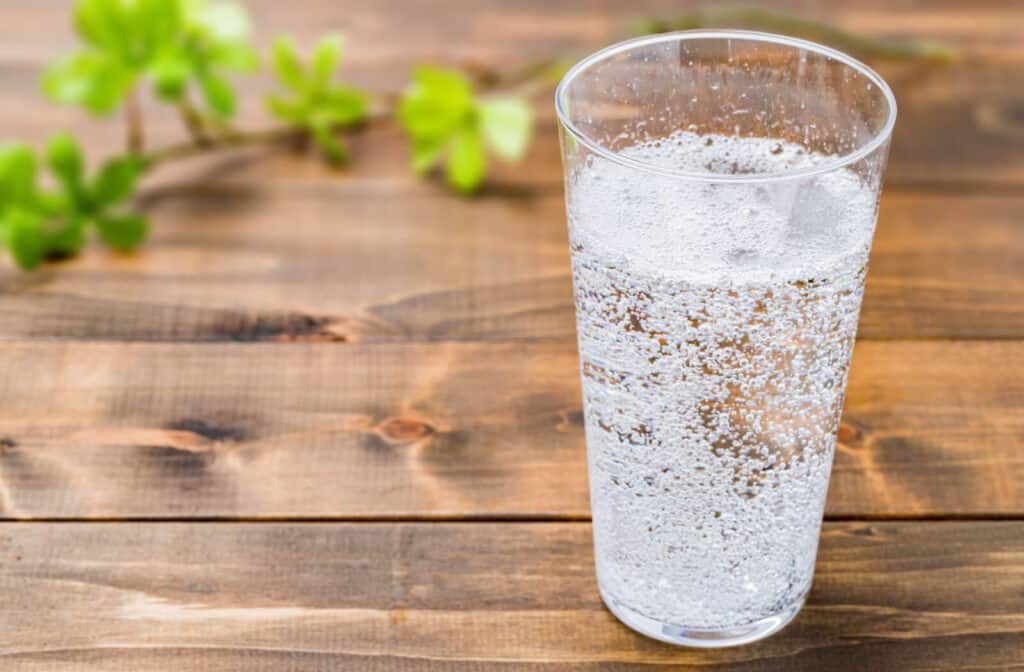Is Carbonated Water Bad for Your Teeth?
In the last several years, carbonated water has taken North America by storm, and it is only expected to continue to rise in the coming years. Therefore, you might be curious about any health complications from the sparkly beverage, particularly concerning your teeth and oral health.
Carbonated water is not necessarily good for your teeth, but it’s a better option than drinking most other sugary and carbonated beverages.
If you are experiencing symptoms of enamel decay or are worried your diet might have negatively impacted your teeth, please book an appointment with South Ancaster Dental to speak with our team and learn more about our services.
How Does Carbonated Water Affect Your Teeth
One of the big reasons that typical carbonated beverages damage your teeth is their high pH levels and the high sugar quantity often found in drinks like Coca-Cola or Pepsi.
However, carbonated water, if unflavored, is less likely to damage your teeth and enamel when consumed responsibly. Plain water remains optimal for taking care of your teeth and washing away unwanted bacteria.
Understanding pH Levels
In this scenario, the pH level or potential hydrogen level, refers to the degree of acidity in the beverage being examined. Studies have concluded that when a pH level drops below 5.5, it can start to break down your tooth’s enamel.
A study from McGill University measured the pH levels of some of the popular carbonated waters on the market. Here are some of the results:
- Perrier = 4.68
- San Pellegrino = 4.28
- Club Soda = 3.69
- Nestle (Pure Life) = 4.45
From these results, carbonated beverages drop below the recommended level, but not to the extent of many other commonly consumed beverages. For example, Coca-Cola has an estimated pH level of 2.6-2.7, and some wines can drop to 2.9.
Carbonated water can negatively affect your teeth, but it is better to drink than other sugary and carbonated sodas when consumed responsibly.

How to Minimize the Impact of Carbonated Water on Your Teeth?
If you still plan to drink carbonated beverages or water, try following some of the steps below to minimize its impact on your teeth.
- Drink the beverage quicker rather than saving it and sipping throughout the day. Your mouth balances pH levels and needs time to return to normal.
- Drink through a straw and minimize carbonated water’s contact with your teeth.
- Avoid brushing your teeth immediately after consuming carbonated beverages, as it weakens tooth enamel, and brushing too soon could cause further damage.
- Rinse your mouth and drink plain water to help return your pH level to normal.
- Chew sugarless gum, which helps to encourage saliva production.
- Avoid drinking high-acidity beverages altogether and stick to flat water.
- Get regular dental cleanings and check in with your dentist.
If you are experiencing discomfort in your teeth, consider booking a consultation with South Ancaster Dental to discuss your symptoms with an experienced dental professional.
Other Common Beverages That May Be Bad for Your Teeth
Water is likely the ideal beverage for maintaining oral health, but that does not have to mean you should avoid drinking anything else altogether.
It is important to consume other drinks responsibly and pay attention to the impact they may be having on your teeth and body. Nonetheless, here are a few other beverages that are known to be bad for your teeth:
- Pops and Sodas
- Coffee
- Alcohol, like wine and beer
- Flavoured sparkling water
- Milk
- Many fruit juices
How to Know if Your Enamel Might Be Damaged?
Eroded enamel can lead to many complications affecting your teeth’ aesthetics and functionality. Here are some symptoms that might indicate an issue with your tooth’s enamel:
- Increased sensitivity to food or temperature
- Cracks, chips or indentations on your teeth
- Any noticeable discoloration
Here are some of the issues that can happen from eroded enamel:
- Yellow teeth
- High sensitivity
- Fractured teeth
- Shiny spots or translucent teeth
If you notice any of these symptoms, we recommend visiting your local dental centre for a thorough evaluation and cleaning of your teeth.
Causes of Enamel Erosion
Carbonated beverages and other sugary drinks are not the only way your tooth enamel can erode. It can also result from many of the foods you likely eat. Check out some commonly eaten foods that can cause enamel erosion below:
- Ice cream, syrups, and chocolates with lots of sugar
- Fruits and berries with high acidity
- Foods like white bread with lots of starch
- Milk, eggs, and some cheeses
We recommend doing your best to maintain a healthy diet while properly taking care of your teeth with daily hygiene practices and scheduling a regular dental cleaning.
Book a Cleaning Today
If you are experiencing symptoms of enamel erosion or need to schedule your next dental cleaning, please do not hesitate to contact our friendly staff and book an appointment.

